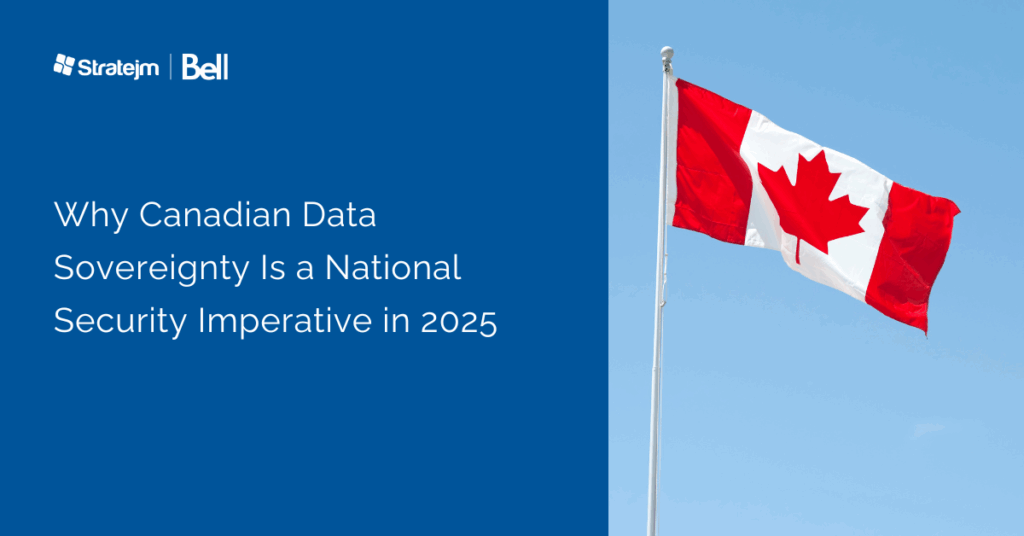
In 2025, data is power—economically, politically, and militarily. As artificial intelligence (AI), quantum computing, and cross-border cybercrime accelerate at machine speed, Canada’s digital sovereignty is facing unprecedented challenges. For enterprises, public institutions, and government agencies alike, data sovereignty is no longer a technical preference—it’s a national security imperative.
And yet, many of our most sensitive datasets—ranging from healthcare and financial records to critical infrastructure telemetry—are still hosted, analyzed, and backed up in foreign jurisdictions. The question we must ask isn’t just “Is the data secure?” It’s: “Is it sovereign?”
What Is Data Sovereignty and Why Does It Matter?
Data sovereignty refers to the principle that data is subject to the laws and governance structures of the nation in which it is collected and stored. For Canadian organizations, this means ensuring that sensitive data remains within Canadian borders—governed by Canadian law, not by the extraterritorial reach of foreign agencies or multinational providers.
Without data sovereignty:
-
Canadian data can be subpoenaed, surveilled, or accessed by foreign governments under laws like the U.S. CLOUD Act.
-
Response to security incidents can be delayed or obstructed due to legal and logistical jurisdictional barriers.
-
Regulatory compliance—especially for healthcare (PHIPA), finance (OSFI), and critical infrastructure—is put at risk.
In 2024, the Canadian Centre for Cyber Security warned that foreign hosting and processing of critical data increases risk to national cyber resilience, especially in sectors tied to public safety and democratic institutions.
The Modern Threat Landscape Moves at Machine Speed
The cyber threat landscape in 2025 is evolving at machine speed, driven by AI-powered attacks, state-sponsored espionage, and an explosion in supply chain risk. Threat actors now use generative AI to automate phishing, craft polymorphic malware, and adapt in real time—leaving traditional defenses struggling to keep up. Nation-states exploit jurisdictional gaps, targeting organizations with foreign-hosted data subject to external legal access. Meanwhile, the industrialization of cybercrime-as-a-service and the rise of third-party breaches mean Canadian organizations can be compromised even when they aren’t directly attacked. In this environment, maintaining control over where data resides and who governs it is no longer optional—it is foundational to national and organizational security. We can’t protect Canadian national interests with multi-year procurement cycles or fragmented, multinational cloud strategies. We must build sovereign, scalable, and secure systems that can be deployed in months, not years—designed for agility, accountability, and operational control.
Why Canadian Organizations Must Lead
From healthcare and telecom to energy and defense, Canadian organizations are stewards of data that affects national resilience. But when that data is hosted in foreign-owned infrastructure or routed through overseas security platforms, we cede more than visibility—we cede control.
This isn’t about fear—it’s about future-readiness.
It’s about:
-
Protecting Canadian intellectual property and innovation
-
Ensuring that digital infrastructure aligns with Canadian laws and democratic values
-
Preserving the autonomy to detect, respond, and recover from cyber threats on Canadian soil, without relying on foreign legal frameworks
A New Mandate for Canadian Cybersecurity
At Stratejm + Bell, we believe Canada must lead, not lag, in shaping the next generation of cybersecurity infrastructure. That’s why our security operations, threat intelligence, and managed services are not only designed in Canada—they are hosted, governed, and operated entirely within Canadian borders.
Our approach ensures:
-
Data residency and jurisdictional assurance
-
Real-time detection and response by Canadian SOC teams
-
Alignment with Canadian regulatory frameworks
-
Sovereignty by design, not as an afterthought
Patriotism isn’t just about loyalty—it’s about leadership. And when the security of our economy, institutions, and citizens is at stake, falling behind is not an option.

